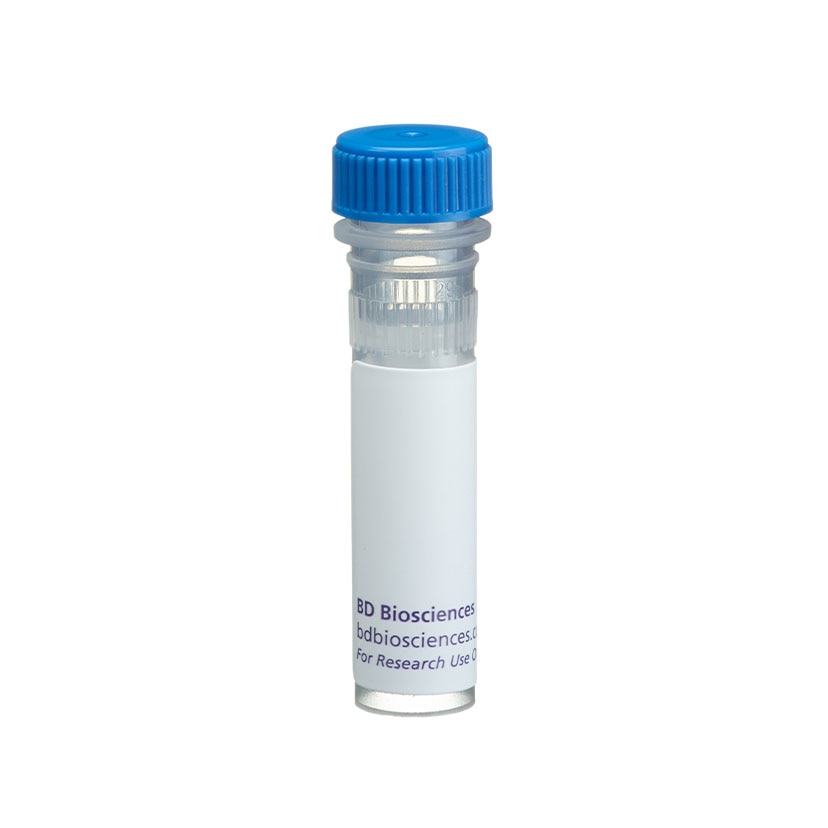-
Reagents
- Flow Cytometry Reagents
-
Western Blotting and Molecular Reagents
- Immunoassay Reagents
-
Single-Cell Multiomics Reagents
- BD® OMICS-Guard Sample Preservation Buffer
- BD® AbSeq Assay
- BD® Single-Cell Multiplexing Kit
- BD Rhapsody™ ATAC-Seq Assays
- BD Rhapsody™ Whole Transcriptome Analysis (WTA) Amplification Kit
- BD Rhapsody™ TCR/BCR Next Multiomic Assays
- BD Rhapsody™ Targeted mRNA Kits
- BD Rhapsody™ Accessory Kits
- BD® OMICS-One Protein Panels
- BD OMICS-One™ WTA Next Assay
-
Functional Assays
-
Microscopy and Imaging Reagents
-
Cell Preparation and Separation Reagents
Old Browser
This page has been recently translated and is available in French now.
Looks like you're visiting us from {countryName}.
Would you like to stay on the current location site or be switched to your location?
BD Pharmingen™ Purified Rat Anti-Mouse IgG2a
Clone R19-15 (RUO)


Regulatory Status Legend
Any use of products other than the permitted use without the express written authorization of Becton, Dickinson and Company is strictly prohibited.
Preparation And Storage
Recommended Assay Procedures
For the sandwich mouse IgG2a ELISA, biotin-, AKP-, or HRP-conjugated R19-15 mAb (Cat. no. 553388, 553389, or 553391, respectively) is optimal for detection with purified anti-mouse IgG2a R11-89 mAb (Cat. no. 553446) for capture. This pair of anti-mouse IgG2a mAbs can effectively quantitate mouse IgG2a of these mouse Igh-C allotypes, in order of sensitivity from highest to lowest: e, a, j, and b. R19-15 antibody is effective for detection of cell-surface Ig by immunofluorescent staining with flow cytometric analysis. For flow cytometric detection of intracytoplasmic IgG2a, we recommend FITC-conjugated mAb R19-15 (Cat. no. 553390).
Product Notices
- Since applications vary, each investigator should titrate the reagent to obtain optimal results.
- Please refer to www.bdbiosciences.com/us/s/resources for technical protocols.
- Caution: Sodium azide yields highly toxic hydrazoic acid under acidic conditions. Dilute azide compounds in running water before discarding to avoid accumulation of potentially explosive deposits in plumbing.
- Sodium azide is a reversible inhibitor of oxidative metabolism; therefore, antibody preparations containing this preservative agent must not be used in cell cultures nor injected into animals. Sodium azide may be removed by washing stained cells or plate-bound antibody or dialyzing soluble antibody in sodium azide-free buffer. Since endotoxin may also affect the results of functional studies, we recommend the NA/LE (No Azide/Low Endotoxin) antibody format, if available, for in vitro and in vivo use.
The R19-15 antibody recognizes an epitope in the CH3 domain of mouse IgG2a, with strong reactivity to the Igh-I[a] allotype and weaker reactivity to Igh-I[b]. It does not react with other Ig isotypes. Molecular genetic analyses suggest that the Igh-I[b] allele, which encodes IgG2a[b], is derived from a locus found in several wild mouse subspecies, but not domestic mice, which encodes the IgG2c isotype.
This antibody is routinely tested by ELISA analysis. Other applications were tested at BD BIosciences Pharmingen during antibody development only or reported in the literature.
Development References (2)
-
Martin RM, Silva A, Lew AM. The Igh-1 sequence of the non-obese diabetic (NOD) mouse assigns it to the IgG2c isotype. Immunogenetics. 1997; 46(2):167-168. (Biology). View Reference
-
Morgado MG, Cam P, Gris-Liebe C, Cazenave PA, Jouvin-Marche E. Further evidence that BALB/c and C57BL/6 gamma 2a genes originate from two distinct isotypes. EMBO J. 1989; 8(11):3245-3251. (Biology). View Reference
Please refer to Support Documents for Quality Certificates
Global - Refer to manufacturer's instructions for use and related User Manuals and Technical data sheets before using this products as described
Comparisons, where applicable, are made against older BD Technology, manual methods or are general performance claims. Comparisons are not made against non-BD technologies, unless otherwise noted.
For Research Use Only. Not for use in diagnostic or therapeutic procedures.